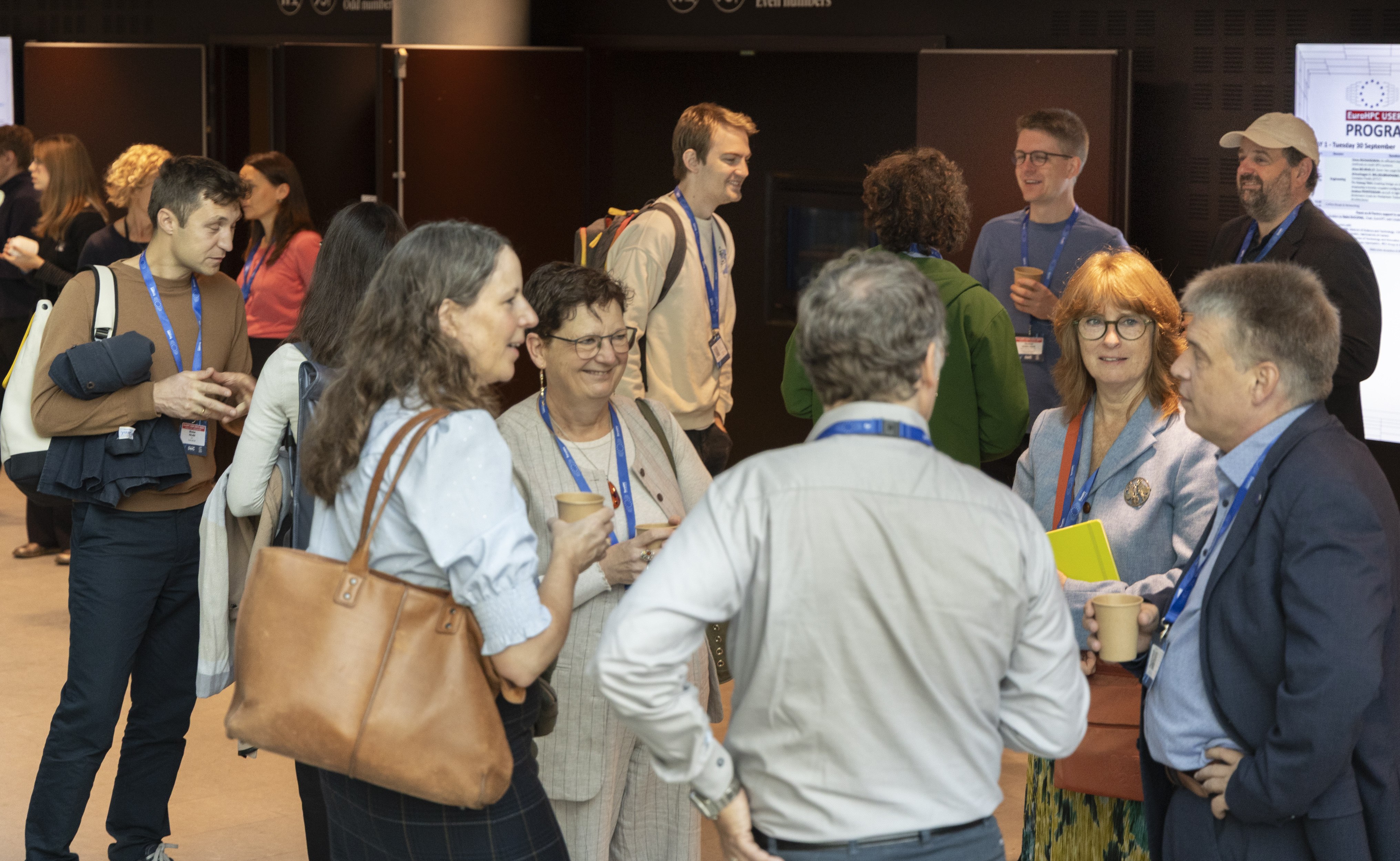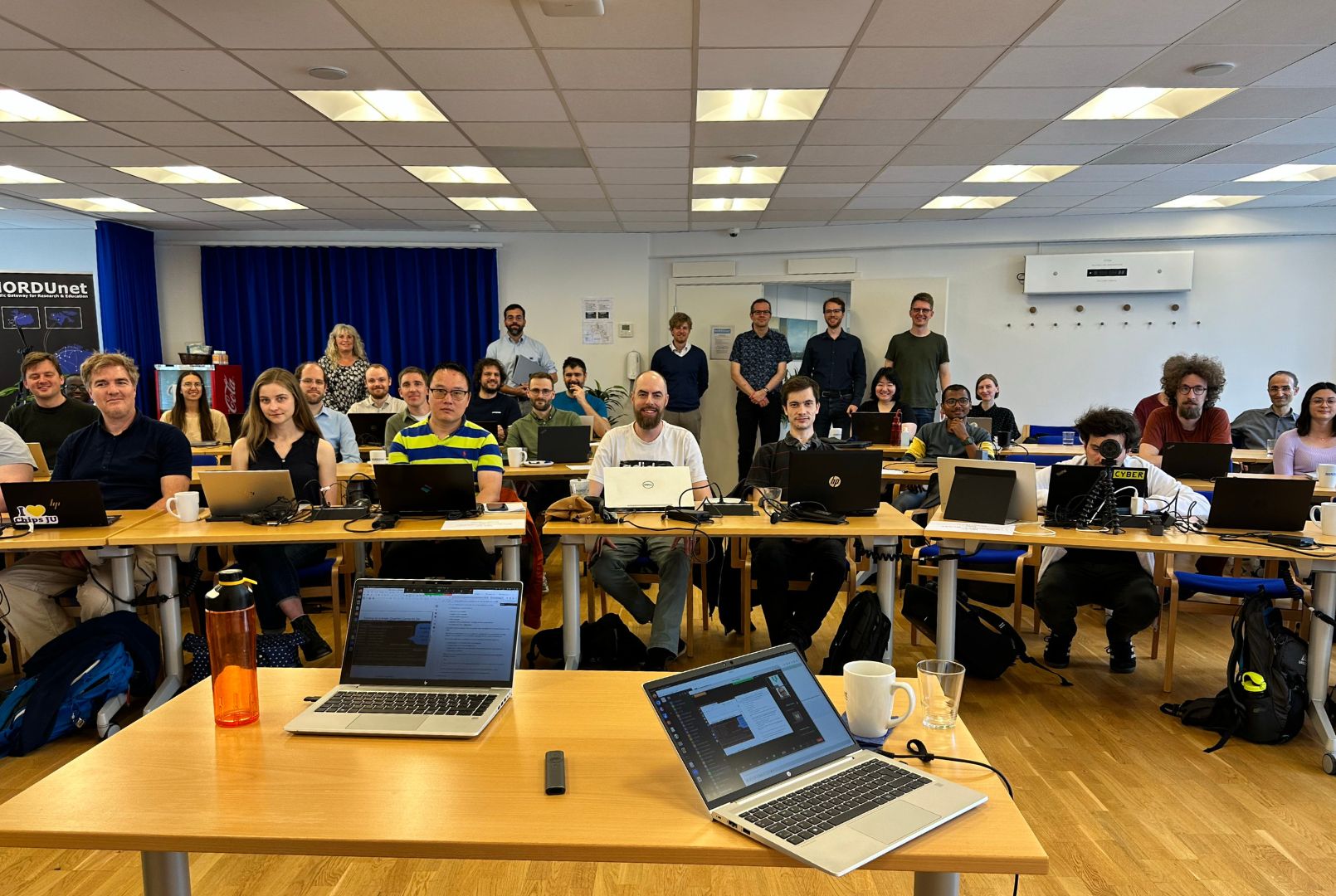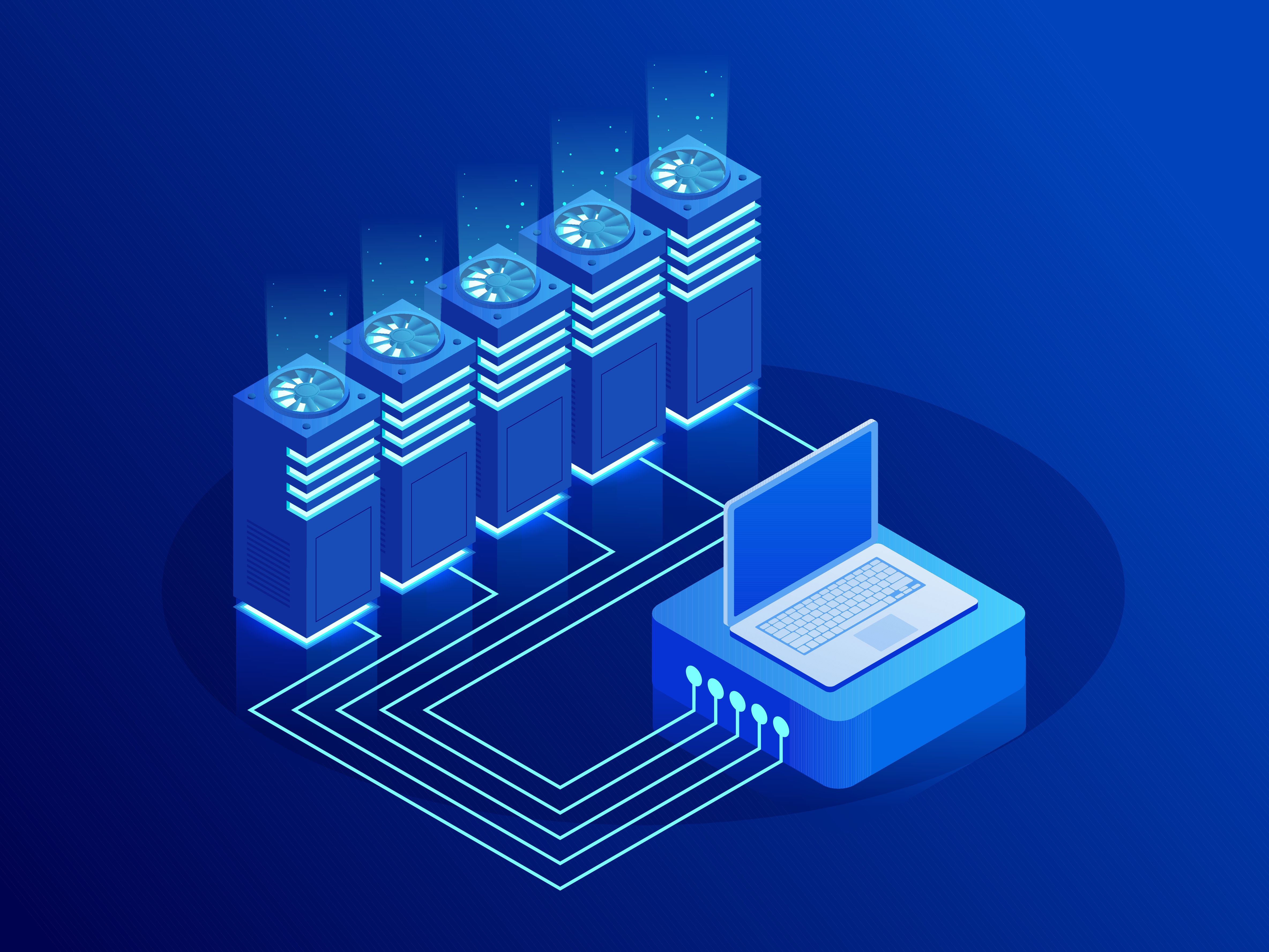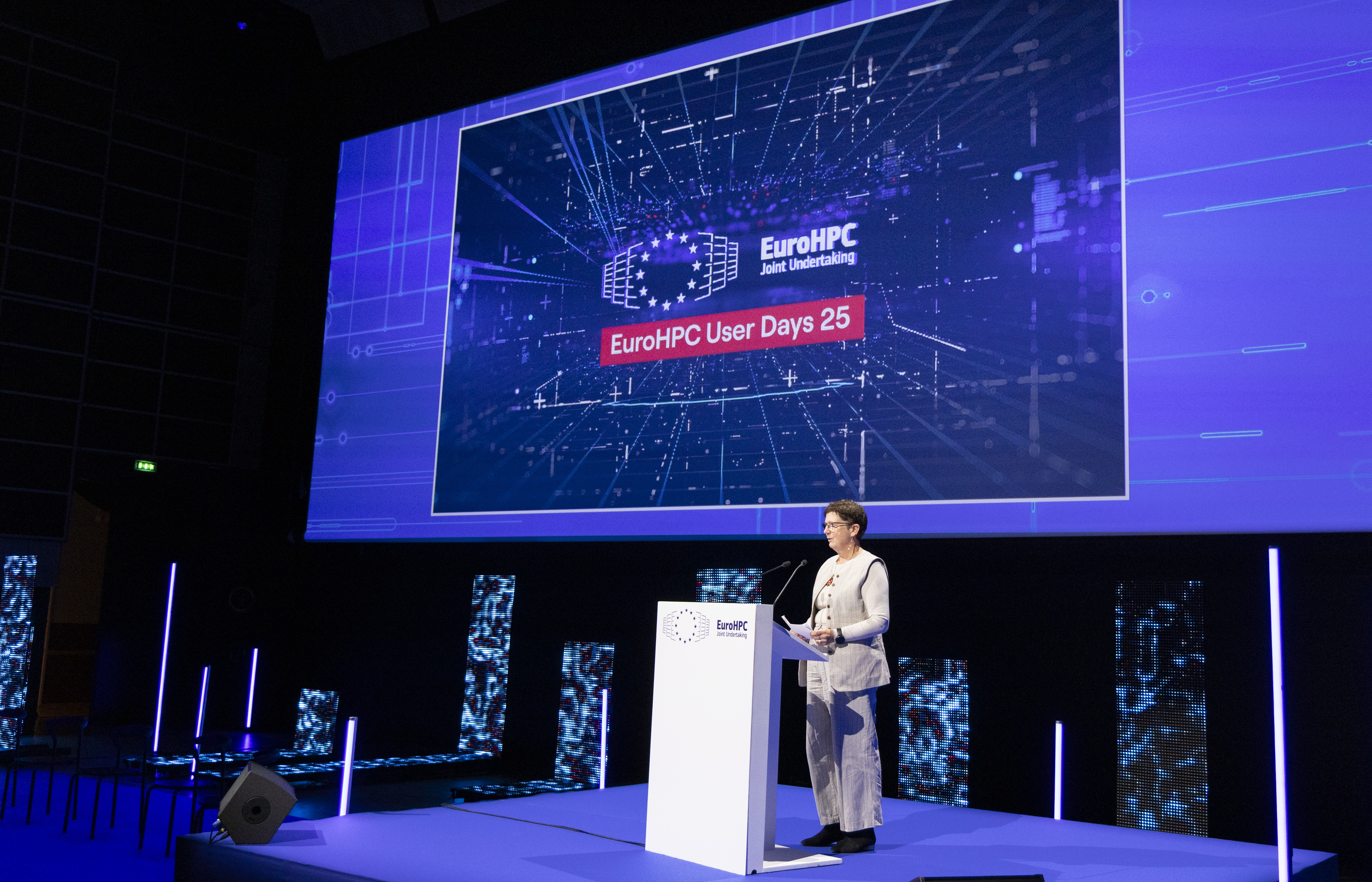
Hosted at The Black Diamond and the Danish Architecture Centre, the event gathered nearly 300 participants on site and a further 80 online – underscoring the increasing momentum and strategic importance of high-performance computing across Europe.
Organised by the EuroHPC Joint Undertaking (JU), EuroCC Denmark, and DeiC, the two-day event showcased groundbreaking projects powered by European supercomputers. Highlights included advances in climate simulation, multilingual AI models, and scalable traffic flow analysis. The programme featured peer-reviewed research presentations, panel discussions, and exchanges on user support, hosting facilities, and emerging AI factories.
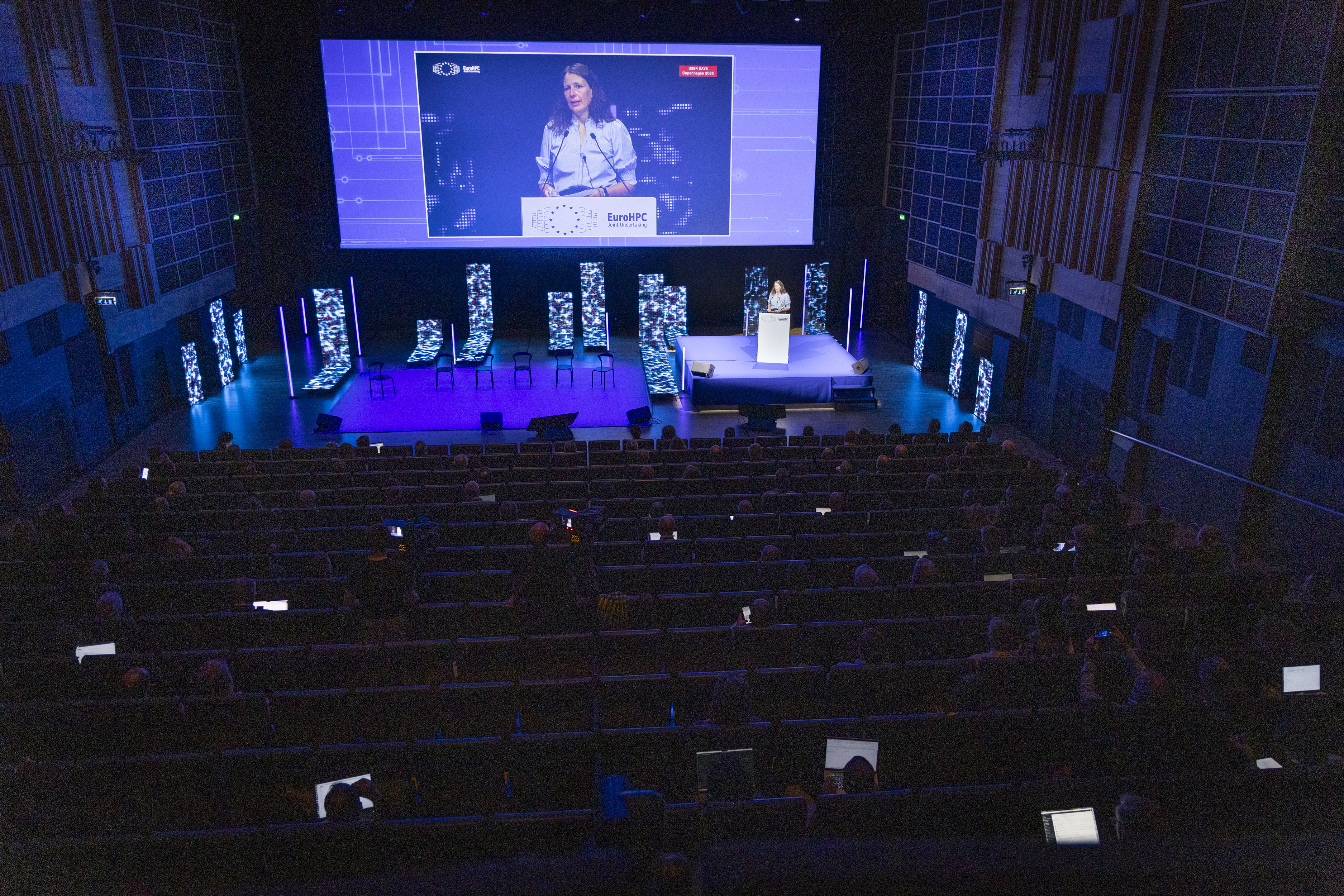
In their opening remarks, Anders Dam Jensen (EuroHPC JU), Gitte Julin Kudsk (DeiC), and Annemarie Falktoft (Danish Agency for Higher Education and Science) stressed the importance of collaboration. As Jensen noted, within just five years, EuroHPC JU has acquired and deployed more supercomputers than any other initiative worldwide – expanding access and impact across the continent.
From the opening plenary to the closing session “What’s Next for Users?”, the event reflected the growing role of HPC in areas ranging from climate science and materials research to artificial intelligence and quantum computing. Two panel discussions, moderated by Eske Christiansen (DeiC) and Dennis Wollbrink (EuroCC Denmark / DeiC), explored the evolving role of AI in science and industry – touching on reproducibility, EU AI legislation, and new applications in public services and biomedical research.
The event brought together a diverse range of organisations – including Danish universities, AI factories such as AI:AT, HammerHAI, LUMI, and MIMER, as well as projects like FFplus, EPICURE, and several EuroHPC JU Centres of Excellence (CoEs). Their participation added breadth and energy to the discussions and demonstrated the innovation thriving within the EuroHPC community. A highlight was the launch of the LUMI AI Factory service catalogue, marking a key milestone in making HPC and AI more accessible to startups, SMEs, and researchers across Europe.
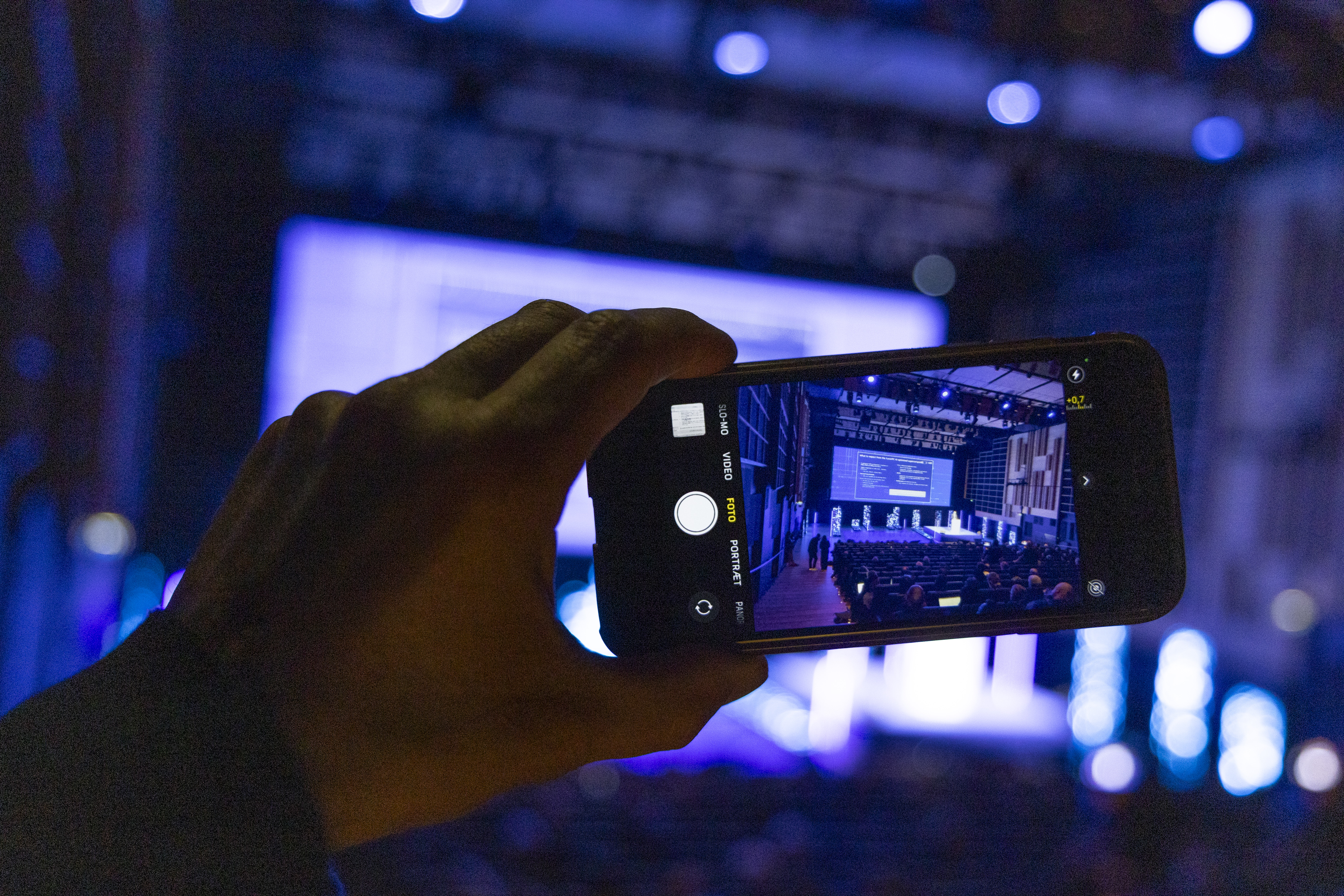
Lively discussions filled the venues – from exhibition stands to networking areas – whether on CASTIEL’s support services, the latest CoE research results, or real-world HPC applications. The User Forum, led by Chris Richardson, together with the publication of selected papers in Procedia Computer Science, reinforced the event’s role as a cornerstone for excellence and strategic collaboration in European HPC.
For DeiC and EuroCC Denmark, EuroHPC User Days 2025 was more than a successful gathering. It was a celebration of collaboration, community, and Denmark’s ongoing commitment to advancing European HPC.
